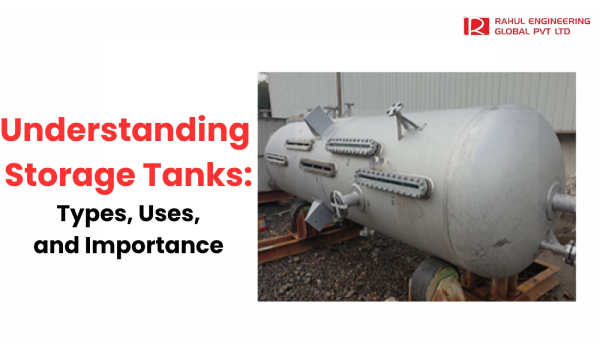
Storage tanks play a crucial role in various industries, serving as containers for storing liquids, gases, and other substances. They come in different shapes, sizes, and materials, designed to meet specific storage needs across industries such as oil and gas, chemical manufacturing, agriculture, and more. Understanding the types, uses, and importance of storage tanks can shed light on their significance in modern industrial processes.
Types of Storage Tanks
1. Flat Bottom, Top Cone API Type Tanks: These tanks are characterized by their flat bottoms, which provide stability and are suitable for storing a wide range of liquids, from water to chemicals. They are commonly used in industries such as agriculture, oil and gas, and manufacturing.
2. Top Cone API Type Tanks: These tanks feature a conical roof design, offering strength and durability. They adhere to the standards set by the American Petroleum Institute (API) and are commonly used in the oil and gas industry for the storage of crude oil, petroleum products, and other liquids.
3. Horizontal Storage Tanks: As the name suggests, these tanks are horizontally oriented and are suitable for storing liquids under low-pressure conditions. They are space-efficient and commonly used in industries like food processing, pharmaceuticals, and wastewater treatment.
4. Laser Welded Jacket Tank: These tanks utilize advanced laser welding techniques to create a jacketed structure that allows for temperature regulation. They are ideal for storing substances sensitive to temperature changes, such as food ingredients or pharmaceuticals.
5. Horizontal Tanks: Suitable for limited space applications, these tanks are wider than they are tall and rest horizontally.
Uses of Storage Tanks
1. Oil and Gas Industry
Storage tanks in this sector store crude oil, refined products, and natural gas liquids. They play a pivotal role in the extraction, refinement, and distribution processes.
2. Chemical Industry
Storage tanks are crucial for storing various chemicals used in manufacturing processes. They ensure safe containment and handling of hazardous substances.
3. Agriculture
Tanks in agriculture are used for storing water, fertilizers, pesticides, and other agricultural chemicals, aiding in irrigation and crop management.
4. Water Treatment
Storage tanks store treated water before distribution to homes, industries, or for emergency reserves.
Importance of Storage Tanks
1. Safety and Environmental Protection
Properly designed and maintained storage tanks ensure the safe containment of hazardous materials, minimizing the risk of leaks and environmental contamination.
2. Resource Management
They facilitate the efficient storage and distribution of resources, optimizing production processes and ensuring a steady supply when needed.
3. Economic Impact
Storage tanks contribute to the economy by supporting industries that rely on them for their operations. Efficient storage leads to cost savings and increased productivity.
4. Regulatory Compliance
Adherence to stringent regulations governing storage tanks is crucial to ensure operational legality and environmental responsibility.
In conclusion, storage tanks are indispensable components across various industries, providing safe and efficient storage solutions for a wide array of substances. Understanding their types, uses, and importance is crucial for maintaining operational efficiency, safety, and environmental responsibility in industrial processes.
For inquiries regarding our diverse range of storage tanks or to discuss your specific storage requirements, please reach out to Rahul Engineering Global Pvt Ltd. Contact us at [insert contact information, such as phone number or email address], and our team will be delighted to assist you promptly.
Please insert the appropriate contact details (phone number, email address, etc.) where potential customers can reach out to Rahul Engineering Global Pvt Ltd for inquiries about their storage tanks.
